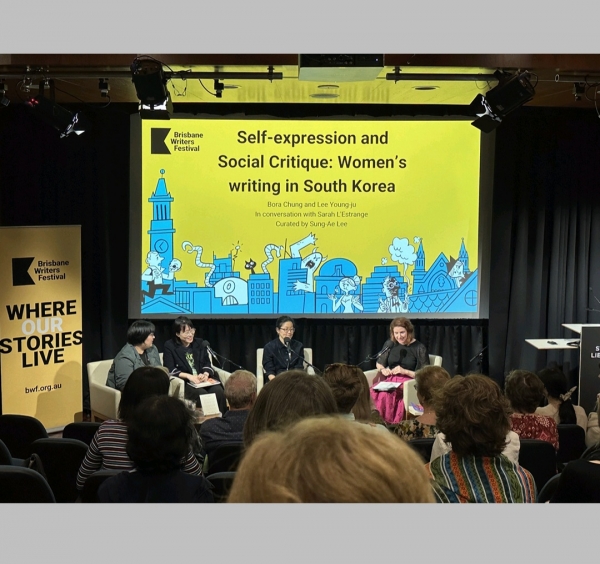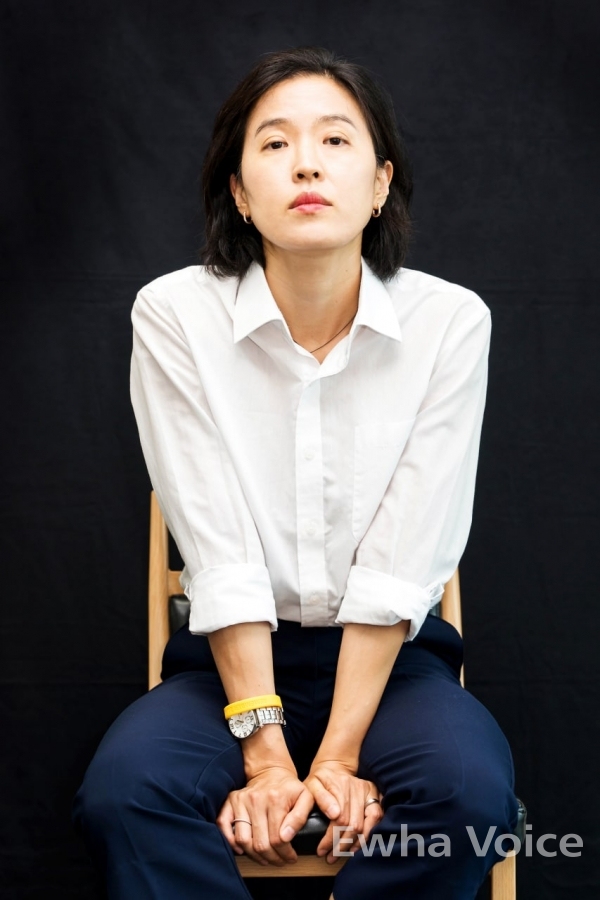
Since the Korea Culture and Arts Foundation established the Korean Literature Translation Support Project to attract international readers in 1968, Korean literature has long been on the path towards becoming a major contributor in enriching world literature.
As another indication of the gradual globalization of Korean literature, the 2023 Brisbane Writers Festival, one of the world’s most renowned literature festivals, chose South Korea as the country of focus and invited five Korean writers to share Korea’s dynamic voices through literature.
Bora Chung, a Korean writer and author of “Cursed Bunny” which was shortlisted for the International Booker Prize in 2022, contributed her expertise in writing Korean novels to the festival.
“Being able to interact with writers from the English-speaking world like Australia was a big honor,” Chung remarked on her overall impression of the festival. “I was also extremely grateful for Korean fans who came all the way to Brisbane to support us.”
Moreover, Chung shared her experience during one particularly memorable session entitled “Why Is Short Fiction Important?” where she pointed out a unique characteristic of Korean literature that all forms of fiction have developed evenly. This contrasts with English-speaking nations and Europe, which tend to promote full-length novels and avoid short fiction. Furthermore, the Korean Spring Literary Contest gives novelists a chance to become accustomed to writing short stories early on in their careers. In turn, readers analyze Koreanliterature trends by following short fiction works of new novelists.
“There are short fiction stories that compress the long lives of the main characters into a short number of pages, and there are others that feel like a magnifying glass, zooming into a particular scene in the character’s life,” Chung explained. “This diversity is a distinctive feature of Korean literature.”
Chung also addressed the changing global perception of Korean literature. Korean literature writers have consistently created captivating stories that feature self-reflection and healthy social criticism, leading cultural trends around the globe. She cited the example of Jeon Min-Hee’s novel “Children of the Rune,” which sold more than 3 million copies in Japan and Taiwan in the early 2000s.
During a session on LGBTQA+ and diversity at the Bogota International Book Fair, Chung recalled how members of the LGBTQA+ club at the University of Los Andes cheered upon the closure of her speech toward supporting diversity of human identity and sexual orientation.
“The warm regards I received from the members motivated me to work even harder as a true writer who confronts social issues through writing,” Chung said.

Chung believes that the poor treatment of literary writers has resulted in the underappreciation of Korean literature globally. Translation institutions such as the Literature Translation Institute of Korea suffer from an inadequate number of employees, low budget and lack of authority. To actively introduce Korean literature into nations that are unfamiliar with Korean society such as Mongolia and Albania, she stressed that government support should be utilized.
Anton Hur, a full-time Korean-to-English translator who received global recognition for flawless translation of Chung’s “Cursed Bunny,” similarly spoke out about the reality of being a literary translator.
“Translation as a general field is doing great, but not literary translation,” Hur said.
The circumstances of a literary translator are harsh in Korea. There are only three full-time translators including Hur, and they currently receive less compensation than they did 13 years ago even though they have played a major role in introducing Korean literature to the world. Consequently, the development of the Korean translation industry has slowed due to a lack of students opting to specialize in literary translation.
Though translators are overlooked by the society, Hur maintains a strong sense of professionalism in upholding foreign readers’ expectations about Korean literature. He went on to say that he strives to focus on whether the story comes through to the international audience as clearly as the Korean author intended.
Krys Lee, South Korean author and translator, spoke up on the global role of literary translation. In Lee’s opinion, though good translation helps bring Korean literature to a wider audience, the globalization of literature in general should be celebrated, and literature of every country around the world should be explored as much as that of one particular nation.
Lee further emphasized on the social influence of literature writers as the author of “How I Became a North Korean,” which discusses social issues regarding North Korean defectors.
“There was nothing more rewarding than getting a mail from a young college student who wrote that reading my short story collection ‘Drifting House’ saved her life,” Lee said. “I do not like to think of myself as a person of social influence. However, I think all of us, wherever we are, influence the people around us and it is important to be always mindful of who we are and how we affect other people.”
In the words of Moon Jeong-hee, director of the National Museum of Korean Literature, “We must grow to the point where world literature feels incomplete without Korean literature.”
As such, the efforts of Korean writers and related specialists will continue without pause, embracing hopes to see Korean literature bloom anew in the near future.

